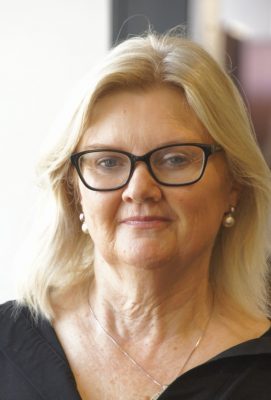
ANIMAL welfare practices and tracking the industry’s sustainability credentials are top of mind for beef producers, according to the Australian Beef Sustainability Framework’s latest annual update, released at the ABSF’s seminar at Beef Australia 2021 in Rockhampton this morning.
The ABSF defines sustainable beef production and tracks performance over a series of indicators annually.

Tess Herbert
Chair of the sustainability steering group for the ABSF, Tess Herbert, said despite a year of unprecedented challenges, the latest update, the fourth since its inception, revealed that the Australian beef industry was heading in the right direction.
“The past year has been like no other – travel restrictions, lockdowns, quarantine and global disruption have disrupted supply chains and important revenue pathways,” Ms Herbert said.
“Despite the many challenges, responses to our producer sustainability survey increased four-fold demonstrating producers are more engaged with the process of promoting industry transparency and progress.
“We’ve also seen an increase in producer satisfaction, awareness of animal welfare standards and the use of regular pain relief for cattle.
Ms Herbert said by working collaboratively within industry and with our customers and investors, the framework was able to provide a clear and transparent report card on where the industry is up to in the areas they care most about.
“Extensive consultation has been undertaken to optimise indicators and collect the data not only to track performance but identify new opportunities and priority areas for the industry,” Mrs Herbert said.
Industry should be proud of progress, says RMAC
Independent Chair of the Red Meat Advisory Council, John McKillop said this year marks five years since the Red Meat Advisory Council appointed the first Sustainability Steering Group in 2016 and since then many other industries have followed suit.

John McKillop
“The Australian beef industry is at the forefront of setting global benchmarks for animal health, welfare, environmental management and product integrity,” Mr McKillop said.
“As an industry, we should be proud of the progressive leadership that we collectively demonstrated more than half a decade ago to establish the framework. “Australia’s beef industry supply chain set the agenda well before most other industries had even started to consider similar reporting frameworks.”
Key highlights from the 2021 Annual Update include:
- The Australian beef industry remains free from all exotic diseases to ensure access to over 100 markets
- Despite herd rebuild, in 2018 the Australian beef industry had a 51.46pc reduction in the carbon footprint of the industry since the baseline year of 2005. The figure from last year’s report has also been restated from 56.7 to 53.9pc. The Department of Industry, Science, Energy and Resources review and update activity data and the inventory methodology each year, and changes are applied retrospectively to past inventories
- An estimated 30pc of producers now use pain relief for routine, necessary husbandry practices. This is has increased from 21pc last year
- The processing sector reduced the amount of CO2E emitted per tonne carcase weight by 8.1pc when processing beef, and further reduced water usage by 7.9pc
- Producers rated their global life satisfaction at 79.45 out of 100, indicating an increase of quality of life from previous years
- Awareness of Animal Welfare Standards for Cattle has risen to 97.3pc from 73pc
Further proof of industry’s commitment, says CCA
Cattle Council of Australia says the 2021 Australian Beef Sustainability Framework update released this morning gives further proof of the beef industry’s commitment to sustainable agriculture.
 CCA independent southern director, Olivia Lawson said the report found sustained improvement in several key areas.
CCA independent southern director, Olivia Lawson said the report found sustained improvement in several key areas.
“This just shows cattle produces have a lot to be proud of when it comes to sustainability,” Ms Lawson said. “The framework recognises we still have work to do but we have made some good progress through some difficult times. Awareness of animal welfare standards is now nearly at 100pc which is a great result,” she said.
“Cattle Council has been committed to improving producer awareness in this area by providing clear, straightforward information on pain relief use. There has been a marked increase in pain relief use in the past 12 months – there are a lot of highly engaged producers that are going above and beyond to achieve the industry’s goals.”
“The report surveyed four times as many producers, which shows how important it is to our sector.”
The industry was still tracking well to be carbon neutral by 2030, despite a small increase in the measure, Ms Lawson said.
“This is because we are coming out of drought. We expect our footprint to fluctuate as the herd rebuilds, but the overall trend is down,” she said.
“We have nearly doubled the national Paris Agreement target nine years early, with emissions down 51.46pc since 2005. All of this has been achieved at a time when producers have faced fires, floods and drought.”
Producers could be proud of their sustainability work, and the Sustainability Report was keeping the industry on track, she said.
 CCA independent southern director, Olivia Lawson said the report found sustained improvement in several key areas.
CCA independent southern director, Olivia Lawson said the report found sustained improvement in several key areas.


